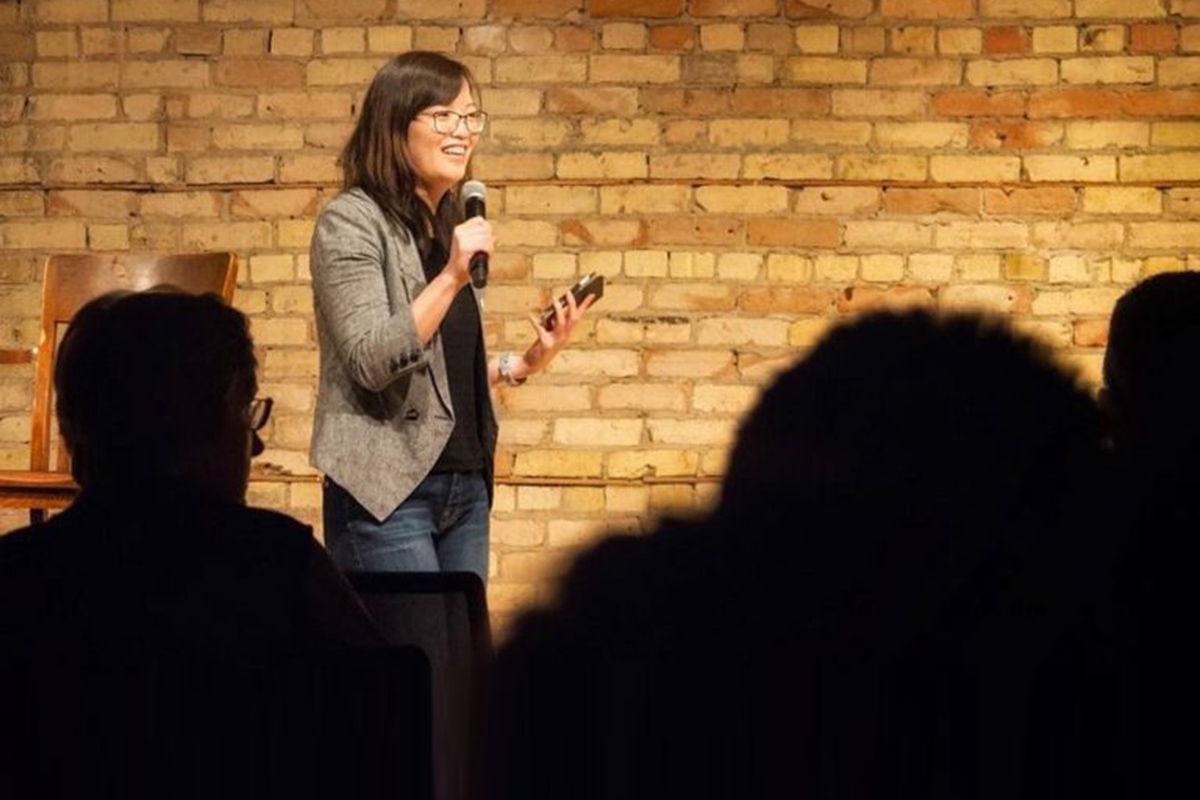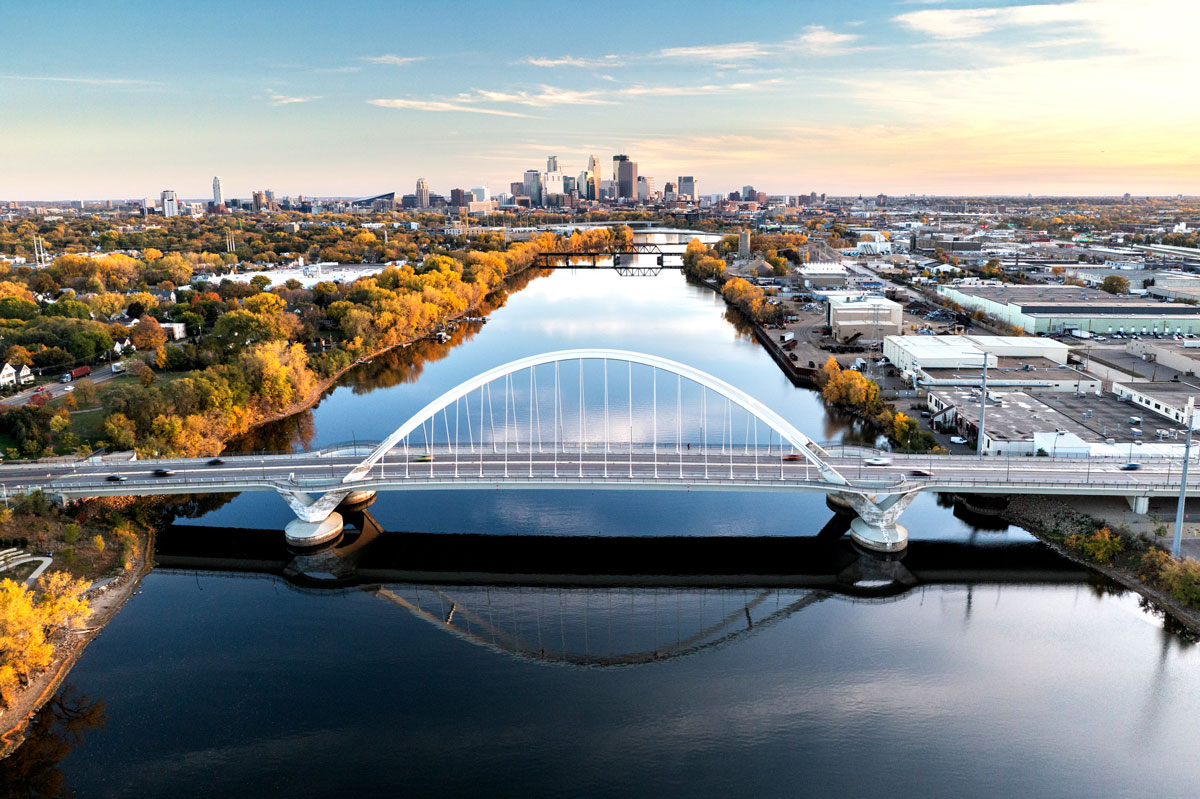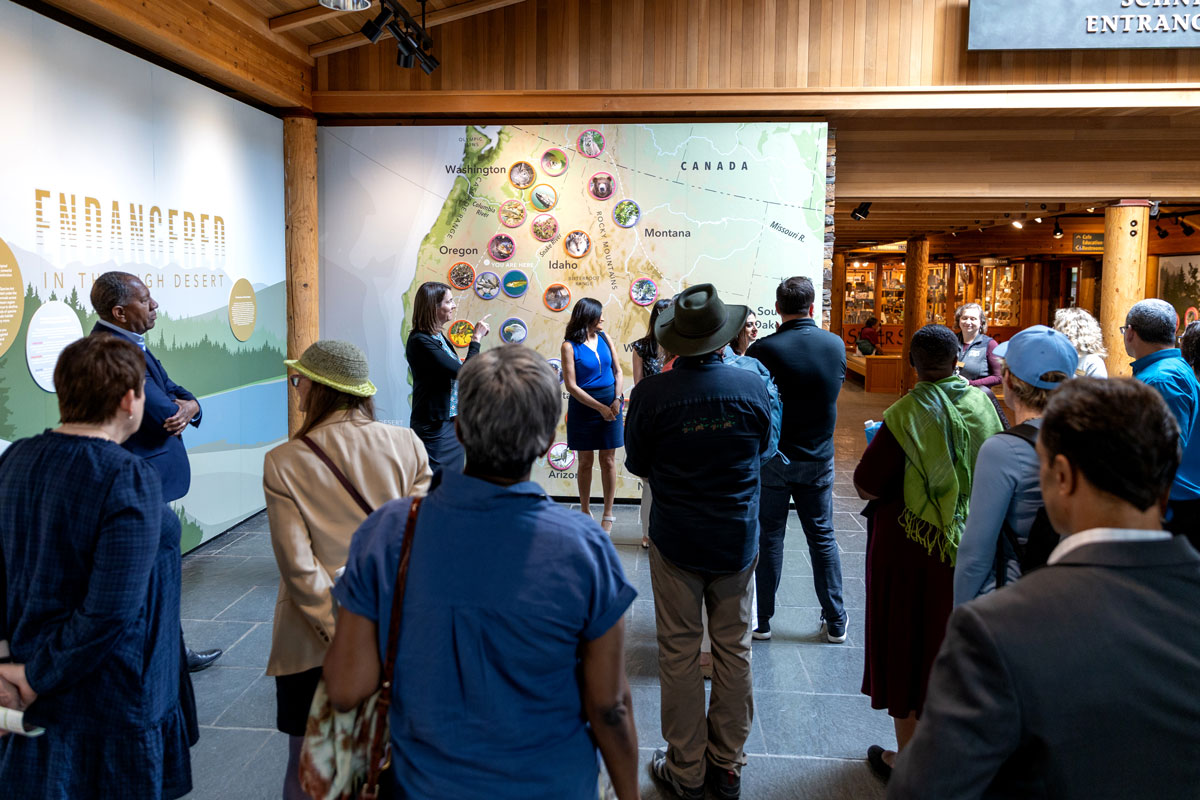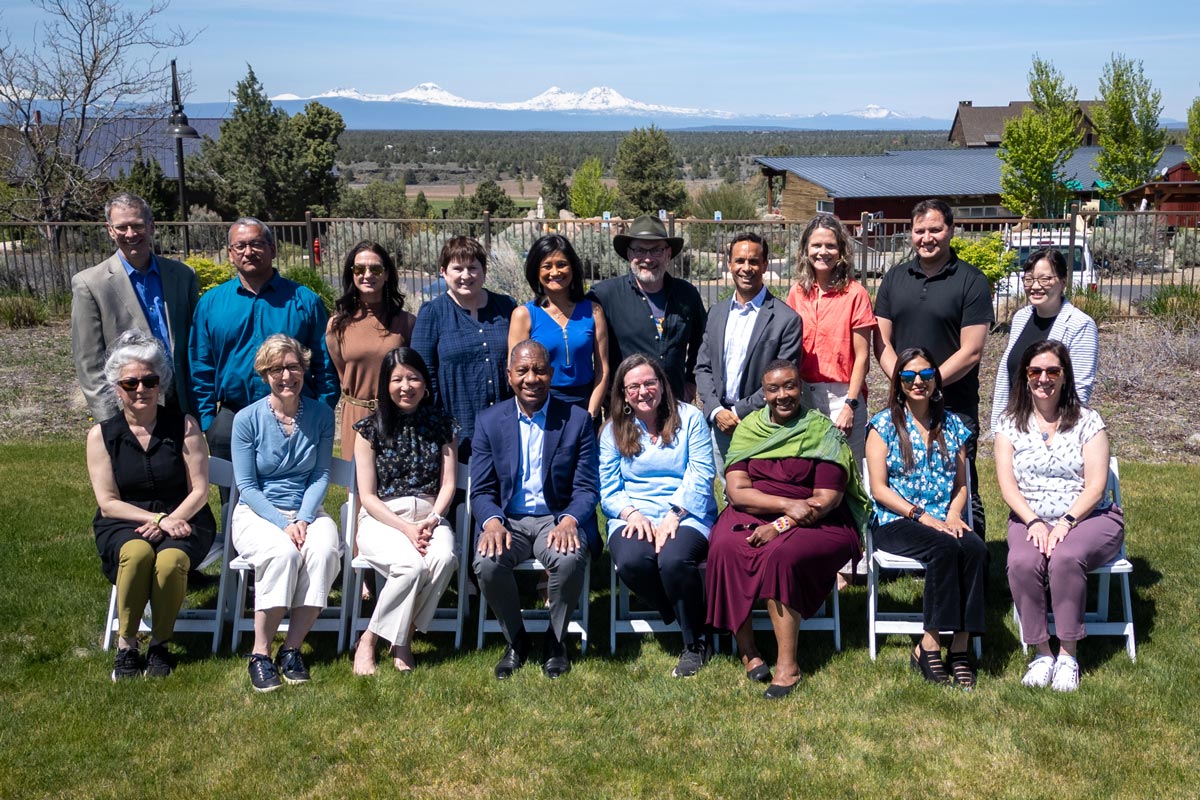Margie Jo Eun Joo Andreason, our DEI manager, writes about how her current role leading the Foundation’s DEI journey grew out of her experience as a Korean adoptee and her passion for social justice.
Recently a colleague shared a piece of life-changing advice: one of the best things I can do to advance my work in social justice is face my own individual trauma. I’ve been on a healing journey ever since—reflecting on my past and engaging in somatic bodywork. Without this kind of inward-facing work, it’s difficult to do the collective healing that is needed in these urgent times.
I believe the same principle holds true for organizations, including the Foundation. Without thorough self-reflection and self-examination, it’s impossible to be the kind of partner we strive to be with our grantees and our broader community. This idea is at the center of our DEI mission, as Kevin Walker lays out in the first blog post in this series.
My experience as a Korean transracial adoptee influences how I see the world.
I came to the United States as a toddler. When I first arrived, I’d spend the day staring off into space, not reacting to anything—but at night I’d cry in gut-wrenching wails. This behavior led my parents to think I had a cognitive disability. Although I could speak, no one around me understood my native tongue—Korean. I think two-and-a-half-year-old Margie was in deep pain; she was grieving and afraid. Like most adoptees, I learned, adapted, and survived.

Growing up in the Twin Cities, I was harassed by other students for how I looked and because of a particular kind of racism aimed at Asian Americans—the model minority myth and the perpetual foreigner syndrome. Often I didn’t know how to handle racist incidents.
I still vividly recall one incident in a high school social studies class. We were learning about the incarceration of Japanese Americans during World War II. One student announced, “They deserved to be in there.” I remember looking to my young, White, female teacher to correct him. When she didn’t, I picked up my bags and stormed out of class.
Back then I didn’t have the words to express how wrong that was and how I was feeling. Today I have the agency to call out injustices and work for social change.
“Throughout the Foundation’s DEI journey, it’s my job to remind folks that we’re not just discussing abstract ideas. We’re working toward measurable change for the people most impacted by inequities.”
People often ask me about my journey to where I am today.
To answer that, we need to look back to the 1950s. The Korean War resulted in ten million separated families—in South Korea alone, the war left half a million widows and tens of thousands of children displaced from their parents. An estimated thirty-six thousand American troops died, and as many as three million Koreans on both sides perished by 1953. (You can read more in Eleana Kim’s “The Origins of Korean Adoption: Cold War Geopolitics and Intimate Diplomacy.”)
I’m a product of the Korean War, US colonial and political interests on the Korean peninsula, gender inequality, deficient domestic policies, and a complex domestic and international adoption system.
My politicization around adoption—i.e., examining the history and complexity of adoption from a systemic perspective—led me to co-found the Network of Politicized Adoptees (NPA), which advances adoptee justice by telling our individual stories and collectively working toward systemic change.
I see myself as a community organizer within my own organization and in the field of philanthropy.
Before I co-founded NPA, I spent about 10 years as a community organizer around media justice, police brutality, and representation in the arts. The insights I gleaned while fighting against predominantly White institutions is useful to me now as I work within predominantly White institutions.
In my current role as the Foundation’s DEI manager, I lean on my experience as a community organizer. Some questions I’m continually asking include:
Who or what has power?
What is this person’s interest in advancing DEI? What does this person really care about?
Who or what would move this person along on the DEI journey?
Who or what can I leverage to advance DEI?
Who are my allies in advancing DEI?
Throughout the Foundation’s DEI journey, it’s my job to remind folks that we’re not just discussing abstract ideas. We’re working toward measurable change for the people most impacted by inequities.
“Civil rights activist Yuri Kochiyama said, ‘Life is not what you alone make it. Life is the input of everyone who touched your life and every experience that entered it. We are all part of one another.’”
My career in philanthropy has become a natural extension of my commitment to social justice.
It came as a bit of a shock to me recently to realize I’ve been working in philanthropy for more than a dozen years. I didn’t seek it. I fell into it by accident. My first foray into the field was with Asian Americans/Pacific Islanders in Philanthropy (AAPIP), a network with a national membership from within and outside of philanthropy working to expand resources that support underserved AAPI communities.
I didn’t know what philanthropy was when I joined AAPIP. But I did know I was attracted to the campaign they hired me for—the National Gender and Equity Campaign, which built social justice capacity for Asian American nonprofits in California and Minnesota. At AAPIP, I learned from amazing leaders, including Peggy Saika, Bo Thao-Urabe, Alice Hom, and many others. When the National Gender and Equity Campaign ended, I was recruited by NWAF.
My first in-person interview at NWAF was with Ruby Azurdia-Lee, who was a program director at the time and who’s now the president of Comunidades Latinas Unidas en Servicio (CLUES). I knew I’d learn a lot from Ruby and from working at NWAF—and I have, first as a program assistant, next as a project coordinator and assistant to the president, and now in my current role as DEI manager. I’m constantly learning from my colleagues at the Foundation and in the field overall.
NWAF believes that embedding DEI across all core functions is imperative for organizational change.
The Foundation’s 2019 Annual Report shows how the start of our DEI journey included crafting a multiyear plan to transform our internal culture and organization, and why this is needed to model constructive change. The plan touches on all seven of our core function areas—which include grantmaking, human resources and organizational culture, communications, and leadership and governance, among others. Twenty-eight task-oriented steps are the center of this living plan that we’ll refine as we move forward with continuous progress and learning. It’s a concrete example of the internal action we’re taking to go all-in on DEI.
Across my DEI journey, healing continues to lead a path toward deeper connection.
Civil rights activist Yuri Kochiyama said, “Life is not what you alone make it. Life is the input of everyone who touched your life and every experience that entered it. We are all part of one another.”
The more I delve deeper into my own healing, the more connected I feel to others who’ve experienced migration or displacement out of their control (often as a result of war or colonialism). The more I understand how connected we are, the greater my bond with those who’ve experienced a disconnect from their birthplace and culture, and with those who’ve felt isolated, as if they didn’t belong anywhere. These are my people.
They’re why I work to advance social justice and to ensure we all have the agency to make our own choices. It’s important to me to be a part of the change I seek in my professional and community work, and through it all, I find joy in learning about other peoples’ stories and seeing our shared pathways toward healing and liberation.
Author
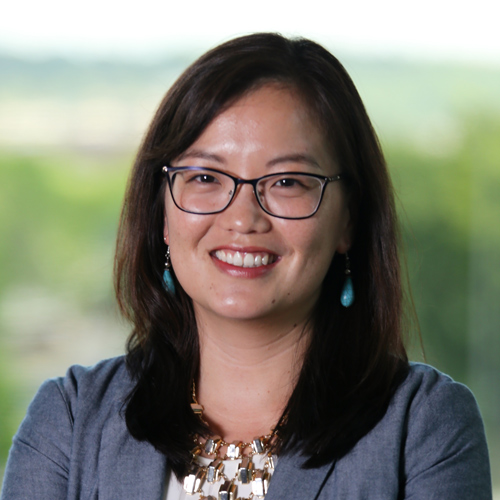
Margie Jo Eun Joo Andreason
Diversity Equity Inclusion Manager, Northwest Area Foundation
THE FIFTH BLOG ENTRY IN OUR SERIES
Insights on Our Journey: A DEI Blog Series
Our Foundation has made a commitment to advance diversity, equity, and inclusion (DEI) in our region. This is the fifth in our series of blog entries that reports on what our staff are thinking as we make our plans. It’s a way of bringing you, our stakeholders, along as we take this journey.
Post 5
From our DEI Manager Margie Jo Eun Joo Andreason—How Self-Healing Can Be a Powerful First Step
View Post
